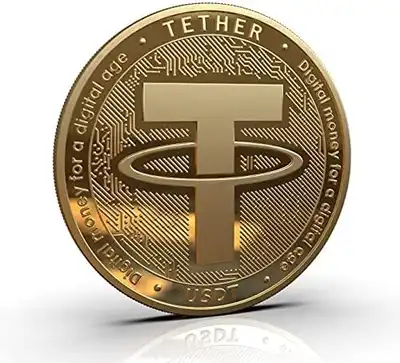As the popularity of cryptocurrencies continues to soar, the need for secure and user-friendly wallets has become paramount. Tether (USDT), a stablecoin pegged to the value of the US dollar, has gained significant traction in the cryptocurrency market. Whether you’re a seasoned investor or a newcomer to the crypto space, selecting the right wallet to hold and transact with Tether is essential. In this blog post, we will explore various wallet options and key considerations to help you make an informed decision.
- Hardware Wallets: Fortresses of Security
If you prioritize security above all else, hardware wallets are the go-to choice for storing Tether. These physical devices store your private keys offline, ensuring that your funds remain safe from potential online threats. Leading hardware wallet brands like Ledger and Trezor support Tether (USDT), making them a preferred option for long-term holders who want to protect their assets from hacking attempts or malware.
Pros:
- High-security level with offline storage of private keys
- Protection against remote attacks
- Support for multiple cryptocurrencies, including Tether
Cons:
- Higher upfront cost compared to other wallet types
- Desktop Wallets: Balancing Security and Accessibility

Desktop wallets are software applications installed on your computer, striking a balance between security and accessibility. They offer a user-friendly interface and provide a secure environment for storing and managing Tether. Popular desktop wallets like Atomic Wallet, Exodus, and Trust Wallet (which also has a mobile version) support Tether and provide easy access to your funds.
Pros:
- Better security than web and mobile wallets
- Convenient access on your computer
- Support for multiple cryptocurrencies
Cons:
- Vulnerable to malware and keyloggers if your computer is compromised
- Mobile Wallets: Tether on the Go
For those who need quick access to their Tether holdings and prefer a mobile experience, mobile wallets are an excellent choice. These smartphone apps allow you to manage your Tether wherever you go, making them ideal for day-to-day transactions and on-the-spot payments. Notably, the Trust Wallet and the official Tether Wallet are both available for Android and iOS.
Pros:
- Convenient and portable
- Intuitive user interface for easy use
- QR code scanning for swift transactions
Cons:
- Prone to mobile malware and phishing attempts
- Web Wallets: Convenience with Caution
Web wallets are accessible through a web browser, offering ease of use and quick access to your Tether funds. While they are convenient, they come with higher security risks, as your private keys are stored on the cloud. If you opt for a web wallet, make sure to use reputable platforms like MyEtherWallet (MEW) or MyCrypto, both of which support Tether.
Pros:
- Easy access from any device with an internet connection
- No need to download or install software
- Seamless integration with decentralized applications (DApps)
Cons:
- Higher vulnerability to hacking and phishing attacks
- Limited control over your private keys
- Exchange Wallets: Convenience at a Cost
Many cryptocurrency exchanges offer wallets for storing your Tether funds. While this provides easy access for trading, it’s essential to exercise caution. Keeping large amounts of Tether on exchanges exposes your funds to potential security breaches or hacking incidents. Only store the amount you plan to trade, and consider transferring the rest to a more secure wallet.
Pros:
- Immediate access for trading
- Integration with exchange services
Cons:
- Increased risk of theft or loss due to exchange vulnerabilities
- Lack of control over private keys
Key Considerations When Choosing a Tether Wallet:
- Security Features: Look for wallets that offer robust security measures like two-factor authentication (2FA) or biometric authentication to safeguard your funds.
- Compatibility: Ensure the wallet supports Tether’s ERC-20 token standard, as USDT is primarily based on the Ethereum blockchain.
- User-Friendly Interface: Opt for a wallet with an intuitive and easy-to-navigate interface to manage your Tether transactions effortlessly.
- Community Trust and Reviews: Read user reviews and gauge community feedback to assess the wallet’s reputation and reliability.
- Development Team and Support: Choose wallets with active development teams and ongoing support to ensure regular updates and bug fixes.
Selecting a suitable wallet for holding and transacting with Tether is a critical decision that should be based on your specific needs and priorities. If security is paramount, consider a hardware wallet. For a balance between security and accessibility, desktop wallets are an excellent choice. Mobile wallets provide convenience on the go, while web wallets offer easy access from any device with an internet connection. Regardless of your choice, remember to prioritize the safety of your private keys and exercise caution when using exchange wallets. By carefully considering the various wallet options and their features, you can confidently manage your Tether holdings and engage in seamless transactions within the cryptocurrency ecosystem.




